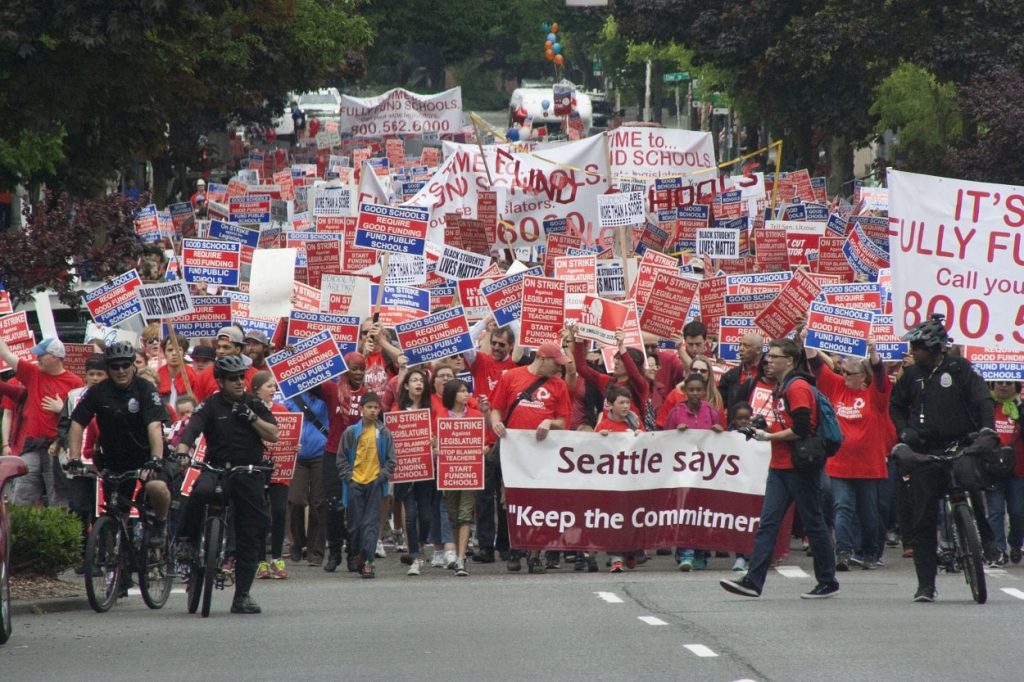
Although I am not a member of the faculty union at the City University of New York (CUNY) where I teach, I am required to pay its annual fee. The courts allow this arrangement called an “agency shop,” so that non-members like me don’t become free riders – getting benefits from union representation in contract negotiations, but not paying for that service.
In fact, my ride has been pretty expensive: I had to fight in court to prove that my union, the Professional Staff Congress (PSC), was abusing the First Amendment rights of nonmembers who objected to the union’s political and ideological expenditures.
My success in that litigation did restore some rights to objecting fee-payers. But I think my case also revealed a lesson of more general importance: unions in agency shops are not being held sufficiently accountable for their use of fee-payers’ money – and First Amendment rights suffer.
First Amendment Rights
The courts long ago recognized the need to protect the free-speech rights of agency fee-payers and, accordingly, they put restrictions on unions in agency shops. Those unions must share financial information with fee-payers and give them a chance to object to and receive rebates for that part of their fee that’s used for political or ideological purposes. To do otherwise would be to compel objecting fee-payers to support speech they disagree with, a violation of the First Amendment.
While fee-payers have the right to object to the union’s ideological expenditures, exercising that right has never been easy at CUNY. The procedures of our teachers’ union, the Professional Staff Congress (PSC) are filled with obstacles designed to discourage fee payers for doing so. Indeed, the court in my case ruled that two of the PSC’s procedural hurdles violated the speech rights of fee-payers. The union was ordered to stop requiring fee-payers 1) to file annual objections and 2) to specify which expenditures are in dispute as a condition for access to arbitration.
The remaining procedures, while deemed legally acceptable, still impose burdens on would-be objectors. For example, to be recognized as objectors, fee-payers must send a registered letter to the union president during a one-month objection period, and they are required to go to arbitration to resolve disputes over the money owed. Contrast the difficulty of those rebate procedures with how easily the fee is extracted from non-members: CUNY simply deducts agency fees (and union dues) from employee paychecks.
The Fox Guards the Henhouse
Let’s assume for the sake of argument that a fee payer has successfully jumped over those hurdles to become an objector who is owed a rebate. That objector now faces perhaps the most important problem with the agency shop model: the union decides for itself what charges are political or ideological and reports its breakdown to fee-payers each year. And if you doubt that this arrangement is open to abuse, here’s a stark example of my case against the PSC.
Before my court case, the PSC’s reports to fee-payers designated as non-political (and therefore not-rebatable) all of its expenses related to its “Contract Campaign,” an expense placed under the category “Office Supplies, Printing, and Publishing.”
It took some digging for me to discover that the “Contract Campaign” consists almost exclusively of public rallies, picket lines, concerts, and letter-writing campaigns. Mischaracterizing these blatantly political activities as “Office Supplies” is on its face an attempt to hide their true nature from fee-payers. Absent my litigation, that subterfuge would have remained hidden. A system that allows such deceptions to go undetected absent litigation is broken. Clearly, unions need to be subject to the independent oversight of their use of fee-payer money.
Who Are the Real Free Riders?
As deceitful as the PSC’s “Office Supplies” trick was, the most significant abuse lies elsewhere. Of the roughly $14.5 million that the PSC raises from CUNY workers annually, it transfers $6.6 million to public-school teachers unions – $3.4 million to the American Federation of Teachers (AFT) and a net of $3.2 million to the New York State United Teachers (NYSUT). The AFT has no involvement with labor issues at CUNY. NYSUT’s involvement with CUNY labor issues is minor, in fact, trivial: it admitted in my court case that its only contribution to the PSC’s contract negotiations was “a few phone calls.”
Clearly, CUNY faculty receive no benefits from the millions transferred to the AFT and virtually none from the millions more transferred to NYSUT. Indeed, those transfers appear to defy court requirements that transfers of dues from a local union to an affiliate must ultimately inure to the benefit of the members of the local.
So, the evidence is plain: the most egregious free riders at CUNY are two public school teachers’ unions, the AFT and NYSUT. They collect millions in dues and fees from CUNY faculty and do nothing in return.
Are there any First Amendment lawyers out there willing to take on the AFT and NYSUT? I am tired of being overcharged for my ride on the union gravy train.